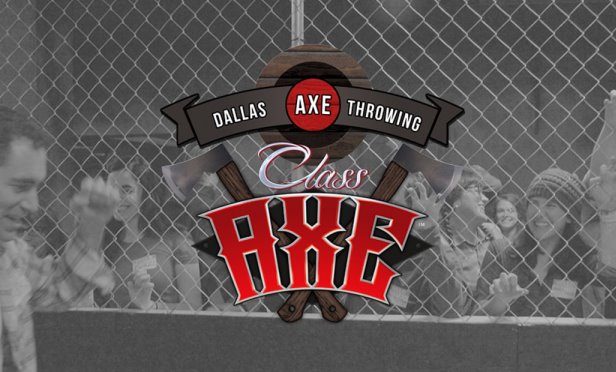 Experts ponder whether purely experiential retailers such as axe-throwing bars have staying power.
Experts ponder whether purely experiential retailers such as axe-throwing bars have staying power.DALLAS—A recent study explored the future of experiential retail─such as axe-throwing bars, food halls and escape rooms─all of which are booming in Dallas. The authors of the Cushman & Wakefield report suggest that the increased drive for experience-based retail across the nation and in Dallas reflects a deeper economic trend─one with implications that go far beyond shopping centers and the shifting tastes of Millennial consumers. It's a trend that plays out most visibly in the retail arena because of the current disruption in the retail industry.
So is this the "retailpocalypse"? Not exactly, the report says. Many retailers facing bankruptcy are in trouble because of unsustainable debt loads, outdated financial growth models that led retailers to over-expand and under-invest at a time where a formidable challenge was brewing on the horizon. For example, since 2010 nearly 60% of all major US retail bankruptcies have been by retailers that were shouldering leveraged buyout debt.
"Having been in the retail real estate industry for more than 17 years, I have to say this is one of the most disruptive eras I've ever seen. Retail is about evolution, and there is significant change happening now," Chris Harden, director, Cushman & Wakefield's capital markets group, tells GlobeSt.com. "The industry has always adapted to constantly changing consumer behaviors and preferences, and the best retailers are those that change with the consumer."
When examining what's driving the experiential retail trend, it's important to note that this trend is not just about competing with e-commerce. The Cushman & Wakefield report finds it is a convergence of an acceleration of "newCommerce", an over-retailed marketplace, the rise of discounters, shifting consumer patterns (for example, Millennials spending differently than past generations) and outdated financial models from Wall Street and private equity that are putting traditional retailers in a tough spot.
"Online retail is a huge disrupter in the way consumers shop and buy goods and services, however, consumers are still driven by the same four fundamentals: they want value, convenience, experience and ethos," Harden tells GlobeSt.com. "It's why we've all seen online-only retailers like Warby Parker, Bonobos and Untuckit begin to open physical locations in the Dallas area. These stores are attractive to consumers because they give them a chance to experience the brand and the products in person. These stores focus on the customer experience by establishing a presence in lively entertaining districts such as Legacy West and by creating Instagram-worthy interiors that are destinations in and of themselves."
Consumers' craving for experiences has been heightened thanks in part to the frenetic, tech-driven world, longer work hours and the fact that many goods have increasingly become commoditized online or via discounters.
This is particularly true for Millennials, 72% of whom prefer to spend money on experiences rather than material items. In the meantime, the Millennial generation has become the largest age demographic cohort in the country.
"Beyond a craving for unique experiences, consumers are also driven by other motivations, such as environmental consciousness and authenticity," Harden tells GlobeSt.com. "That's why the Millennials and Generation Z are so focused on socially responsible brands that stand for something. They crave authenticity. In Dallas, we will likely continue to see the proliferation of mixed-use environments that appeal to value, convenience, experience and ethos."
In actuality, what's happening is another round of retail reinvention. The rise of experiential retail as well as the renewed focus on the consumer experience is one of the solutions to the current bricks-and-mortar malaise.
"Startups like Neighborhood Goods are challenging the traditional model of a department store, which features fixed displays and specific brands, by infusing the concept with new life in a way that's particularly attractive to younger generations," Harden tells GlobeSt.com. "They tout themselves as 'a department store with a story', selling a continually changing selection of products and brands in an always-evolving configuration. It's almost like a series of pop-up shops under one roof. Something new is happening all the time, so shoppers find themselves more immersed and more engaged in the experience, and much more likely to return again and again. Similarly, food halls are a way for restaurants to appeal to consumer demand for experience, novelty and variety, and to encourage repeat visits."
Experiential retail is cropping up in a variety of ways in the Dallas area including eSports arenas and more than a dozen escape rooms. There are experience-driven restaurants and bars, such as Cidercade, Pinewood Social and Another Round, and a forthcoming putt-putt in Trinity Groves. In addition, food halls are everywhere and there are Instagram-worthy experiences at venues such as Candytopia.
"Some of these purely 'experiential' retailers like axe-throwing bars may not have sticking power on their own, but may have a chance as part of an experiential shopping or entertainment destination," Harden tells GlobeSt.com. "It's probably healthy to rotate these type of concepts anyway within districts just to maintain consumer interest."
And DFW promises to be a strong market for new experiential retail for years to come. According to a new report from CoStar, retail comprises 24% of all DFW commercial property space and 12% of employment, adding more than 77,000 new retail jobs since 2010. The same report showed that DFW led the nation with 3.8 million square feet of net absorption during the past 12 months, followed by Houston with 3.4 million square feet.
© Touchpoint Markets, All Rights Reserved. Request academic re-use from www.copyright.com. All other uses, submit a request to [email protected]. For more inforrmation visit Asset & Logo Licensing.







